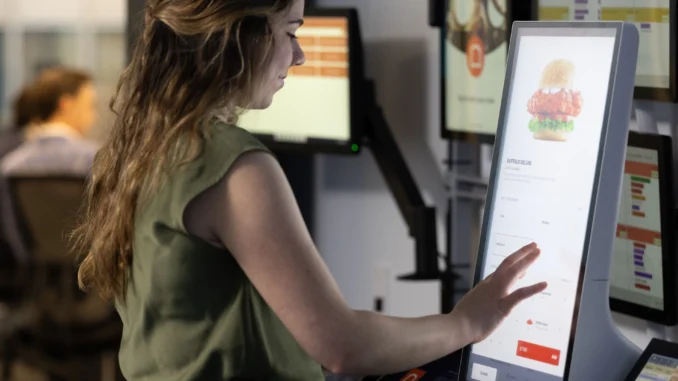
By Orit Naomi, RTN staff writer - 6.19.2025
A new Restaurant Technology Innovation Center has opened in Chicago, offering restaurant operators a neutral, hands-on environment to evaluate and test a wide range of technologies before committing to full-scale implementation. Developed by national consulting firm Point B, the facility is described as the first of its kind dedicated specifically to helping restaurant brands navigate complex technology decisions.
The Center brings together various operational platforms in a simulated restaurant setting, allowing brands to experience how disparate systems interact under realistic conditions. The goal is to help operators assess the functionality, integration capabilities, and long-term viability of technology solutions before committing significant capital. This could be particularly valuable for multi-unit brands, which often face steep implementation risks when rolling out new platforms at scale.
David Hanfland, chief executive officer at Point B, said the idea for the Center was born from conversations with operators overwhelmed by the number of point solutions in the marketplace. “Multi-unit restaurant operators have an overwhelming number of options to evaluate before investing in new technology,” he noted. “To make these decisions easier, Point B’s Restaurant Technology Innovation Center provides a centralized hub showcasing the leading technology solutions so they can try them before implementation.”
While the Innovation Center is vendor-agnostic, it features a curated mix of well-established and emerging technologies. These include front-of-house systems like kiosks, digital menu boards, and tipping tools, as well as back-of-house systems such as kitchen displays, labor management tools, and AI-enabled analytics platforms. The Center is also equipped to test loyalty programs, mobile ordering features, and third-party integrations, reflecting the complexity of today’s restaurant tech stack.
The facility supports simulations across a variety of restaurant formats, from quick service to fast casual and full-service models. Clients are able to run test scenarios using data sets and operational flows tailored to their specific restaurant concepts. Point B says the goal is not only to test functionality but to explore operational impact, including implications for staff training, guest experience, and performance measurement.
Rich Faltot, senior client partner for the restaurant sector at Point B, emphasized the importance of realism in evaluating tech solutions. “This is more than just a lab,” he said. “By simulating real-world scenarios using enterprise-grade technology, we’re giving brands the clarity and tools they need to drive performance, avoid missteps, and make informed decisions.”
Restaurant technology spending continues to grow as operators respond to rising labor costs, shifting consumer expectations, and the continued rise of digital ordering. According to a recent report by Deloitte, 70% of consumers now prefer to order digitally for off-premises dining, and 40% prefer digital options for on-premises dining. At the same time, many operators remain wary of investing in unproven technology that may fail to deliver ROI or create operational friction.
In that context, the opening of Point B’s Innovation Center represents a potentially meaningful development for operators seeking more structure in their decision-making process. While other test kitchens and demonstration spaces exist—often hosted by vendors or academic institutions—the Center is distinctive in its emphasis on cross-platform integration and decision support services.
The facility also offers tailored consulting workshops to help restaurant leadership teams work through specific challenges. These sessions may cover topics such as digital transformation planning, guest journey optimization, or cost-benefit analysis for specific systems. Though still in its early days, the Center aims to function as both a testing ground and a strategic resource.
One early visitor to the Center, Jerry Philips, vice president of technology at Whataburger, expressed enthusiasm about the concept. “I love being able to see all the different types of technology—whether you’re in your point of sale, your back office, your display systems, your kitchen management systems, your data analytics systems—all in one space,” he said.
Whether the Center ultimately becomes a standard model for the industry remains to be seen, but it reflects a broader shift toward more deliberate, data-informed approaches to technology adoption. As the restaurant industry continues to digitize, the need for practical evaluation tools is only likely to increase.

